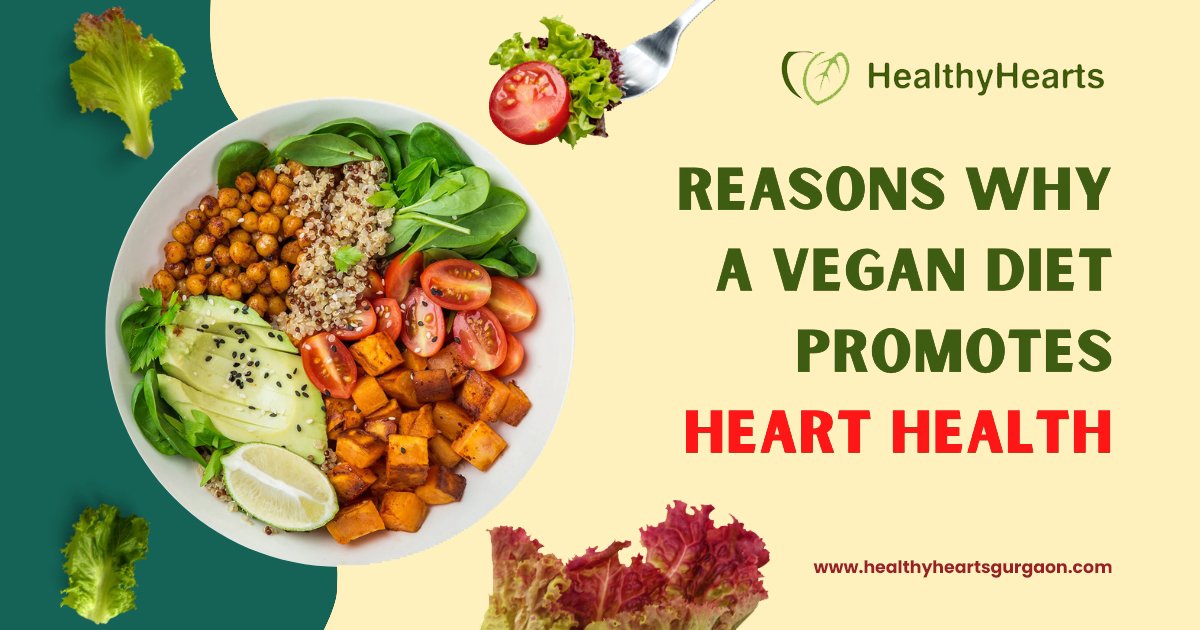

A vegan diet is now in style, and the population of almost every country is increasingly switching to it. But if you think you are also following it because you do not include meat or eggs, you need to know the main difference.
A vegan diet is only plant-based and does not even include milk. As there are mainly three types of plant-based diets, the most common are:
1. Vegan: Only plant-based products are included, excluding meat, eggs, and dairy products.
2. Lacto-vegetarian: You can have dairy products and exclude meat and eggs.
3. Lacto-ovo-vegetarian: In this, you can include dairy products and eggs and exclude meat only.
With the world moving towards a vegan or plant-based diet, have you also thought of doing it? Does it also strike your mind why it is important to include vegan diets or why many people have switched to vegan diets?
Then you’ve come to the right place, as we are here to share and highlight some major reasons given by Dr. Monik Mehta, the best Cardiologist in Gurgaon, for incorporating a vegan diet into your daily life to keep your heart healthy.
A vegan diet, originally called a “plant-based diet” to avoid confusion, is a diet that only consists of plant-based foods. The main rule for following this diet is to exclude all animal products, including dairy products, eggs, meat, etc.
Many people are also starting to exclude honey from their diets; for some, being vegan is just a dietary choice, but for others, it is a lifestyle choice.
A plant-based diet generally includes many fresh fruits, vegetables, beans, pulses, nuts, and seeds.
Switching your normal diet to a vegan one helps in many ways, including directly improving your heart health. A heart doctor in Gurgaon or from other places also explains that including this diet improves your weight, cholesterol, blood pressure, and sugar, all of which can directly lead to a healthy heart.
Having more fibrous diets causes a lower risk of cardiovascular diseases, which can be maintained with a vegan diet as it includes more fiber than other diets. Polyphenols in plant foods help reduce the inflammation that can cause heart disease.
According to the study, a vegan diet helps to improve heart health, as a higher intake of plant-based foods and excluding animal foods will directly reduce the risk of heart disease. Most animal foods contain saturated fat, which causes high cholesterol and blood pressure.
This can be prevented after switching the animal-based food with rich fibrous plants that help to maintain a healthy heart. In addition, many people who have switched to vegan diets start consuming fewer calories than the standard diet they are taking before or you can take advice from heart doctor in Gurgaon.
Decreasing the calories helps prevent major risk factors for bad health, directly improving your heart health.
An abundance of plant foods, such as fruits, vegetables, whole grains, legumes, nuts, seeds, and fortified goods prepared from these foods, will likely be substituted for meat, eggs, and dairy products if you follow a vegan diet.
After a brief reading, you don’t need to worry, as we are not only helping you exclude things from your diet. But knowing the whole list of what you can include helps you prepare your diet plan.
· Fruits
· Vegetables
· Legumes
· Whole Grains
· Nuts and seeds
· Non-egg-based pasta
· Non-egg-based bread
· Herbs and spices
· Yeast and nutritional yeast
· Non-dairy milk, yogurt, cheese, ice cream, etc.
· Soy products (tempeh, tofu, edamame, and soymilk)
Eating a plant-based diet can have numerous benefits for heart health which you will also get advice from heart doctor in Gurgaon. Some of the key benefits include:
1. Lower cholesterol levels: Plant-based diets are typically low in saturated fats and cholesterol, which can help lower cholesterol levels and reduce the risk of heart disease.
2. High in fiber: Plant-based diets are rich in fiber, which can help to lower blood pressure, improve blood sugar control, and reduce inflammation, all of which can help to protect the heart.
3. High in antioxidants: Plant-based diets are also high in antioxidants, which can help to protect the heart by neutralizing harmful free radicals.
4. Low in calories: A plant-based diet is often lower in calories than a diet that includes meat and dairy products, which can help to maintain a healthy weight and lessen the risk of weight gain and related diseases.
5. Good for blood pressure: Plant-based diets are low in sodium and high in potassium, which can balance the electrolytes in the body and help to maintain healthy blood pressure.
6. Lower risk of heart disease: Overall, eating a plant-based diet can help to lower the risk of heart disease, stroke, and other chronic health conditions.
You can improve your heart health and overall well-being by incorporating more fruits, vegetables, whole grains, and legumes into your diet.
For many people, swapping or switching their diet plan or lifestyle is easy, but it is not always easy to switch your daily routine very smoothly. We are not suggesting you change your diet overnight, but you can start incorporating good nutrients into your diet by eating more plant-based foods.
To follow a new diet plan, you require planning, and if you have any heart-related disease or are into medication, you can consult with the best heart hospital in Gurgaon before switching your diet plan.
If you’re still not prepared to be fully vegan and have only a plant-based diet, you can start eating more vegan foods than before. People who want to go vegan must carefully plan their meals to ensure they obtain enough essential nutrients to prevent deficits.
To ensure you’re giving your body what it needs in terms of nutrients, consider taking certain supplements, depending on your knowledge, finances, and culinary abilities or you can also concern heart doctor in Gurgaon.
To Book an appointment with our Cardiologist: